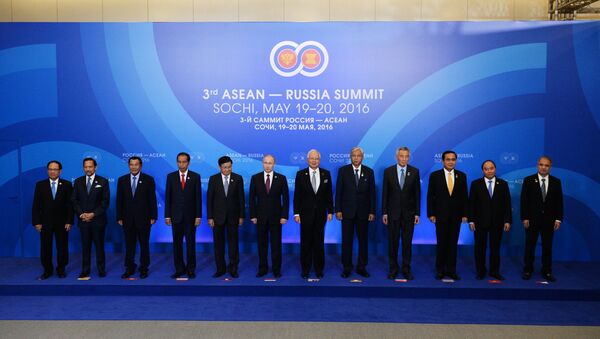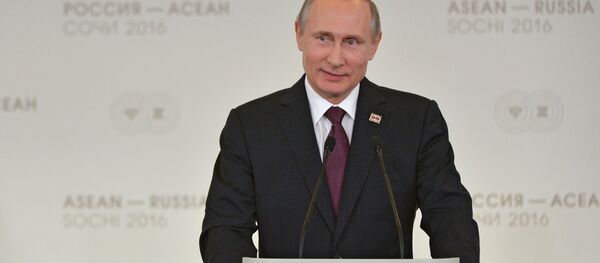"While the West and its strong allies in the region see the move as part of Russia’s 'expansionism', others view it as the Russian way of counterbalancing the US position in the region," the author wrote.
For Asian countries, cooperation with Moscow is a chance to decrease their dependence on the US and its "fragile commitment to their security."
Some ASEAN nations have already supported this approach, the article read. Cooperation with Russia would help them become more independent from the US. In turn, Russia would be able to decrease its reliance on Western markets.
Russia considers ASEAN an opportunity for economic expansion. ASEAN is one of the most successful international organizations uniting 604 million people who produce over $2 trillion of GDP.
"It is a place where the world’s three most powerful states, the US, China and Russia, have been competing for influence for the past three decades," the article read.
Last year, trade between Russia and ASEAN members reached $13.7 billion. Russian President Vladimir Putin noted that trade ties would be further developed. Cooperation is underway in a number of sectors, including agriculture, oil, nuclear energy, and other investments.
Moscow is actively developing regional economic initiatives. Recently, Russia, Azerbaijan and Iran agreed to establish the North-South Transport Corridor along the Caspian Sea. The new route will speed up deliveries of goods from India to Central Asia and Russia. What is more, the corridor will help India, Iran and Azerbaijan gain access to the market of the Eurasian Economic Union (EEU), according to Asia Times.
"Russian military hardware can be seen in Thailand. Russian Mi-17 helicopters have begun to replace US Blackhawks. Thailand’s aging arsenal of American M-60, M-48, and M-41 tanks may soon be replaced by Russian T-90s," the article read.
"US influence in the region is being increasingly challenged, if not replaced, because of its own interventions in the internal political matters of its allies in the region in the name of establishing 'democracy' or protecting 'human rights'," the author wrote.
Russia’s policy in the region may result in withholding or limiting the US influence, to an extent where the US would be unable to operate through its "traditional methods of domination and diplomatic coercion," the article read.
Cooperation between Russia and ASEAN countries was also boosted by anti-Russian policies of the US and the European Union. Moscow has focused on the Asian region due to tensions with Western countries over Ukraine, according to Reuters.




